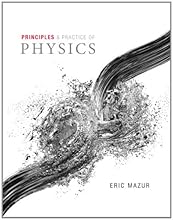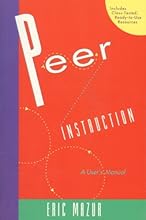Balkanski Professor of Physics, Optical Physics Researcher, Founder of Tech Companies
Eric Mazur Biography
Eric Mazur is the Balkanski Professor of Physics and Applied Physics and Area Chair of Applied Physics at Harvard University, Member of the Faculty of Education at the Harvard Graduate School of Education, and Past President of the Optical Society. An internationally recognized scientist and researcher, he leads a vigorous research program in optical physics in the Physics Department at Harvard University. Mazur founded several companies and plays an active role in industry.
Dr. Mazur came to Harvard University in 1982 after obtaining his Ph.D. at the University of Leiden in the Netherlands. In 1984 he joined the faculty and obtained tenure six years later. Dr. Mazur has made important contributions to spectroscopy, light scattering, the interaction of ultrashort laser pulses with materials, and nanophotonics. Dr. Mazur holds Honorary Doctorates from the Ecole Polytechnique and the University of Montreal, Universidad Nacional Mayor San Marcos, Lima, Peru, and the Katholieke Universiteit Leuven, Leuven, Belgium. He holds Honorary Professorships from Beijing University of Technology, Beijing Normal University, Sichuan University, Nanjing University of Science and Technology, and the Institute of Semiconductor Physics of the Chinese Academy of Sciences.
Eric Mazur has received numerous awards, including the Esther Hoffman Beller award from the Optical Society of America and the Millikan Medal from the American Association of Physics Teachers. In 2014 Mazur became the inaugural recipient of the Minerva Prize for Advancements in Higher Education. He is Fellow of the Optical Society, of the American Physical Society, and of the American Association of Physics Teachers. He is a Member of the Royal Academy of Sciences of the Netherlands and a Member of the Royal Holland Society of Sciences and Humanities. He has held appointments as Visiting Professor or Distinguished Lecturer at Princeton University, Vanderbilt University, the University of Leuven in Belgium, National Taiwan University in Taiwan, Carnegie Mellon University, and Hong Kong University.
Contact a speaker booking agent to check availability on Eric Mazur and other top speakers and celebrities.
Eric Mazur Speaking Topics
-
Getting Every Student Ready for Every Class
1-Hour Discussion Sessions Over the past decades there has been a concerted push away from passive lecturing to active engagement in the classroom. A successful implementation of the so-called flipped classroom requires students to come to class prepared, either by reading the textbook or watching a pre-recorded video. A variety approaches have been devised to get students to take responsibility for this information transfer, but none manage to get all students to participate, compromising active-learning in the classroom. I will present a new approach to get every student to prepare for every class using a new social learning platform that uses a combination of intrinsic and extrinsic motivation factors to get every student ready for every class
-
Innovating Education to Educate Innovators OR Teaching One-on-One, All at Once: Turning lectures into learning
Educators want to prepare students for the 21st century, yet our educational approaches have evolved little over hundreds of years of academic teaching. I will demonstrate how active engagement stimulates both higher-order thinking and motivation to learn.
Eric Mazur Videos


-
How do I book Eric Mazur to speak at my event?
Our experienced booking agents have successfully helped clients around the world secure speakers like Eric Mazur for speaking engagements, personal appearances, product endorsements, or corporate entertainment since 2002. Click the Check Availability button above and complete the form on this page to check availability for Eric Mazur, or call our office at 1.800.698.2536 to discuss your upcoming event. One of our experienced agents will be happy to help you get speaking fee information and check availability for Eric Mazur or any other speaker of your choice. -
What are the speaker fees for Eric Mazur
Speaking fees for Eric Mazur, or any other speakers and celebrities, are determined based on a number of factors and may change without notice. The estimated fees to book Eric Mazur are $10,000 - $20,000 for live events and under $10,000 for virtual events. For the most current speaking fee to hire Eric Mazur, click the Check Availability button above and complete the form on this page, or call our office at 1.800.698.2536 to speak directly with an experienced booking agent. -
What topics does Eric Mazur speak about?
Eric Mazur is a keynote speaker and industry expert whose speaking topics include Author, Educational Motivational, Entrepreneurship, Physics, Professors, Technology -
Where does Eric Mazur travel from?
Eric Mazur generally travels from Boston, MA, USA, but can be booked for private corporate events, personal appearances, keynote speeches, or other performances. For more details, please contact an AAE Booking agent. -
Who is Eric Mazur’s agent?
AAE Speakers Bureau has successfully booked keynote speakers like Eric Mazur for clients worldwide since 2002. As a full-service speaker booking agency, we have access to virtually any speaker or celebrity in the world. Our agents are happy and able to submit an offer to the speaker or celebrity of your choice, letting you benefit from our reputation and long-standing relationships in the industry. Please click the Check Availability button above and complete the form on this page including the details of your event, or call our office at 1.800.698.2536, and one of our agents will assist you to book Eric Mazur for your next private or corporate function. -
What is a full-service speaker booking agency?
AAE Speakers Bureau is a full-service speaker booking agency, meaning we can completely manage the speaker’s or celebrity’s engagement with your organization from the time of booking your speaker through the event’s completion. We provide all of the services you need to host Eric Mazur or any other speaker of your choice, including offer negotiation, contractual assistance, accounting and billing, and event speaker travel and logistics services. When you book a speaker with us, we manage the process of hosting a speaker for you as an extension of your team. Our goal is to give our clients peace of mind and a best-in-class service experience when booking a speaker with us. -
Why is AAE Speakers Bureau different from other booking agencies?
If you’re looking for the best, unbiased speaker recommendations, paired with a top-notch customer service experience, you’re in the right place. At AAE Speakers Bureau, we exclusively represent the interests of our clients - professional organizations, companies, universities, and associations. We intentionally do not represent the speakers we feature or book. That is so we can present our clients with the broadest and best performing set of speaker options in the market today, and we can make these recommendations without any obligation to promote a specific speaker over another. This is why when our agents suggest a speaker for your event, you can be assured that they are of the highest quality with a history of proven success with our other clients.
Eric Mazur is a keynote speaker and industry expert who speaks on a wide range of topics such as Getting Every Student Ready for Every Class , Innovating Education to Educate Innovators OR Teaching One-on-One, All at Once: Turning lectures into learning, Confessions of a converted lecturer, Educating the Innovators of the 21st Century and Assessment: The silent killer of learning. The estimated speaking fee range to book Eric Mazur for your event is $10,000 - $20,000. Eric Mazur generally travels from Boston, MA, USA and can be booked for (private) corporate events, personal appearances, keynote speeches, or other performances. Similar motivational celebrity speakers are Jaime Casap, Sylvia Acevedo, Eduardo Briceño, Jon Bergmann and Arne Duncan. Contact All American Speakers for ratings, reviews, videos and information on scheduling Eric Mazur for an upcoming live or virtual event.
This website is a resource for event professionals and strives to provide the most comprehensive catalog of thought leaders and industry experts to consider for speaking engagements. A listing or profile on this website does not imply an agency affiliation or endorsement by the talent.
All American Entertainment (AAE) exclusively represents the interests of talent buyers, and does not claim to be the agency or management for any speaker or artist on this site. AAE is a talent booking agency for paid events only. We do not handle requests for donation of time or media requests for interviews, and cannot provide celebrity contact information.
If you are the talent and wish to request a profile update or removal from our online directory, please submit a profile request form.
































